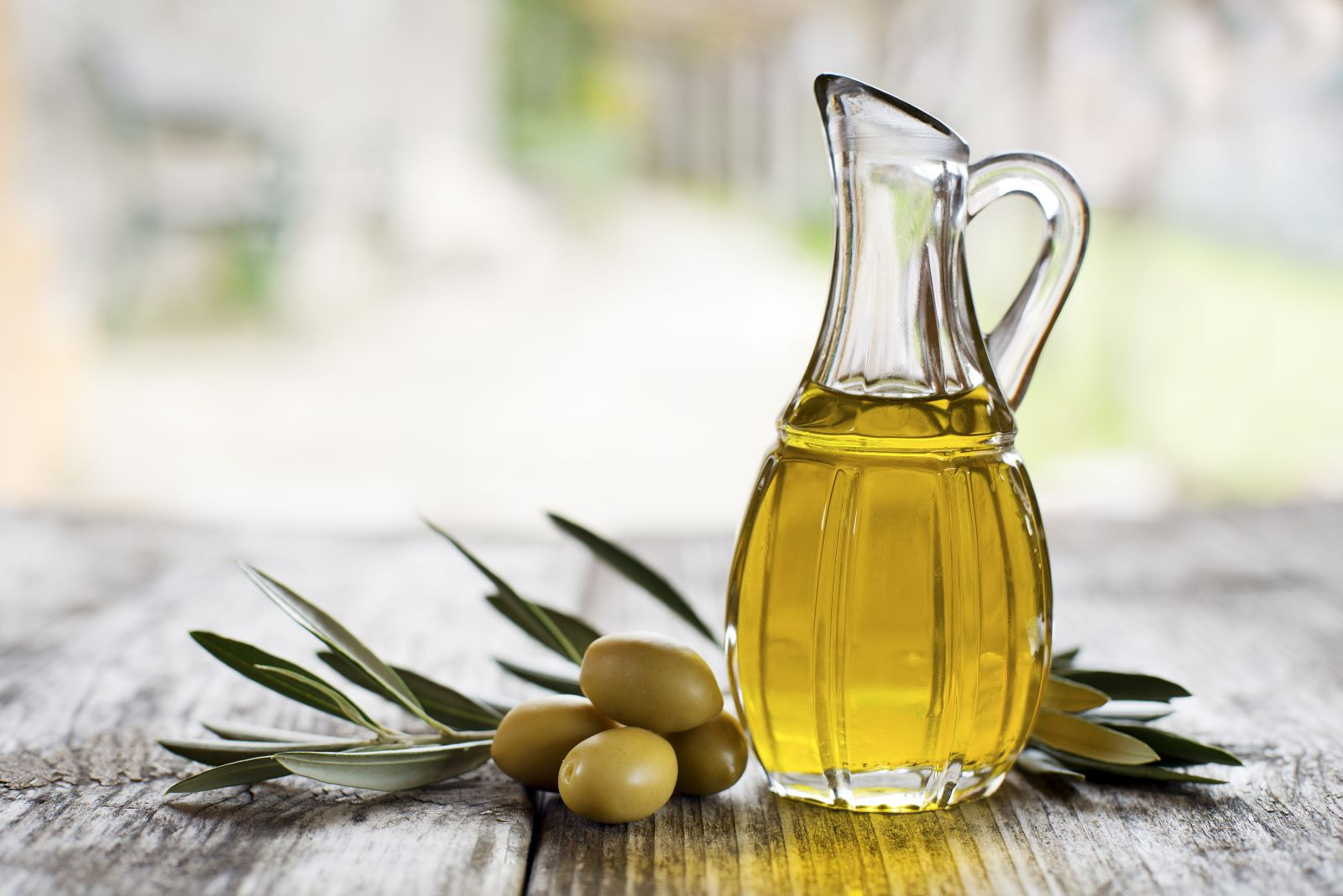
5 timeless habits for better health

What are the symptoms of prostate cancer?

Is your breakfast cereal healthy?

When pain signals an emergency: Symptoms you should never ignore

Does exercise give you energy?

Acupuncture for pain relief: How it works and what to expect

How to avoid jet lag: Tips for staying alert when you travel

Biofeedback therapy: How it works and how it can help relieve pain

Best vitamins and minerals for energy

Should you take probiotics with antibiotics?
Women's Health Archive
Articles
High olive oil consumption linked to lower breast cancer risk
Image: Bigstock
Research we're watching
A preliminary study published Sept. 14, 2015, in JAMA Internal Medicine reported that older women in Spain who ate a traditional Mediterranean diet enhanced with extra-virgin olive oil were less likely to be diagnosed with breast cancer. The study was part of a large Spanish clinical trial, Prevención con Dieta Mediterránea (PREDIMED).
PREDIMED looked at three different groups of women. One followed the Mediterranean diet plus extra servings of olive oil. A second followed the diet plus extra servings of nuts. Those in the third group were ad-vised to reduce their fat intake. The study followed about 4,300 women ages 60 to 80 for five years.
Survey finds wide use of compounded postmenopausal hormones
Research we're watching
A national survey published Sept. 30, 2015, in Menopause indicates almost a third of women who take hormones at menopause are using compounded hormones—estrogen, progesterone, or testosterone prepared by a pharmacist according to a prescription. Such preparations aren't FDA-approved.
The survey, conducted by the North American Menopause Society, asked 3,700 women ages 40 to 84 about their hormone use at menopause. They were queried about the benefits they expected, the benefits they actually received, the side effects they experienced, and their health histories.
Miscarriage: Keep breaking the silence
Many public figures have begun speaking up about their experiences with miscarriage. While it’s wonderful that they’re breaking the silence, a recent survey has revealed that the general public still has a lot of misconceptions about this surprisingly common event. Dr. Hope Ricciotti shares her reactions to the survey results, and her advice to women experiencing miscarriage.
Addyi is not a "female Viagra," but it can open an important discussion
Many of my patients, colleagues, friends, and even neighbors have asked me about the new drug flibanserin (Addyi), which the FDA recently approved for treatment of low sexual desire in women. Flibanserin has generated more questions, comments, and media inquiries for me than I've ever experienced in my 20-year career as an obstetrician/gynecologist. While there are several medications that improve sexual function in men (including Viagra, the most famous one), flibanserin is the first to be approved for that purpose in women. Here are what I consider the relevant facts about flibanserin, and what I say to my patients.
The "pink pill" works differently than the "blue pill"—Viagra. Image: Thinkstock |
A few things you might not know about alcohol
Beer, wine, and spirits are foods as well as intoxicants that have different effects in women than in men.
In the first episode of the sitcom "Grace and Frankie," the title characters, played by Jane Fonda and Lily Tomlin, are ordering drinks before dinner. When carb-conscious Fonda sends the breadbasket away and asks for a very dry vodka martini, Tomlin reminds her that vodka is made from potatoes. Fonda responds, "Alcohol has its own rules."
Research we're watching: Working overtime may raise stroke risk
If you're "leaning in" by putting in extra hours on the job, you may be gaining gender equality that you don't want—the same stroke risk as your male colleagues. A recent analysis indicates that women who work 55 hours or more per week have a 30% higher risk of having a stroke than those working standard hours, making them just as likely to have a stroke as their male counterparts.
Image: Thinkstock |
The analysis, published online Aug. 20, 2015, by The Lancet, was conducted by European public health re-searchers. It involved data from over 600,000 women and men enrolled in long-term observational studies in Europe and the United States. It was the first such analysis of the relationship between working long hours and stroke. The researchers noted several factors that might have contributed to the elevated stroke risk, including the additional stress of balancing the extra work hours, inactivity, long periods of sitting, and ignoring stroke warning signs.
Research we're watching: Analysis raises new questions about treating noninvasive breast cancer
The purpose of treating ductal carcinoma in situ (DCIS)—the earliest, noninvasive form of breast cancer (often called "precancer")—is to prevent those lesions from becoming invasive and thereby greatly reduce the risk of dying from breast cancer. As mammography has become more precise, it has detected more DCIS, and more women get treatment with surgery and often radiation as well. An analysis published online by JAMA Oncology on Aug. 20, 2015, adds to increasing questions about the best way to manage DCIS in most women diagnosed with it.
Canadian researchers analyzed 20 years of data from 108,000 women with DCIS in a database maintained by the National Cancer Institute. Most women were treated with lumpectomy, often followed by radiation, or mastectomy. The researchers found that treatment with radiation or mastectomy did not lower the overall breast cancer death rate in women with DCIS. It remained at 3.3%—the average death rate from all breast cancers. However there were some groups—including African American women and women under 40—in whom the death rate was higher (7% to 8%).
Research we're watching: Small study shows little bone benefit from recommended dose of vitamin D
Although vitamin D is essential to bone health, a controlled clinical trial published online by JAMA Internal Medicine on Aug. 3, 2015, found that vitamin D supplements didn't build bone in postmenopausal women with blood levels of vitamin D below the 30-ng/mL threshold generally considered necessary for good health. Researchers at the University of Wisconsin randomly assigned 230 women to three groups: one got 800 IU of vitamin D daily and a placebo twice a month; one got a placebo daily and 50,000 IU of vitamin D twice a month; the third got placebos both daily and twice a month. The study lasted a year. The researchers found that neither dose of vitamin D had a significant effect on bone mass, falls, or fractures.
The Wisconsin study may not have used the right doses of vitamin D or lasted long enough to show an effect. One ongoing study, The Vitamin D and Omega-3 Trial (VITAL), is large enough to demonstrate even small-to-moderate benefits of vitamin D supplementation. VITAL is evaluating a 2,000-IU daily dose for five years in 26,000 women and men. The results are expected in 2017. Until then, it's still important to get the recommended daily dose of vitamin D: 600 IU for adults through age 70 and 800 IU for people ages 71 or older

5 timeless habits for better health

What are the symptoms of prostate cancer?

Is your breakfast cereal healthy?

When pain signals an emergency: Symptoms you should never ignore

Does exercise give you energy?

Acupuncture for pain relief: How it works and what to expect

How to avoid jet lag: Tips for staying alert when you travel

Biofeedback therapy: How it works and how it can help relieve pain

Best vitamins and minerals for energy

Should you take probiotics with antibiotics?
Free Healthbeat Signup
Get the latest in health news delivered to your inbox!
Sign Up









